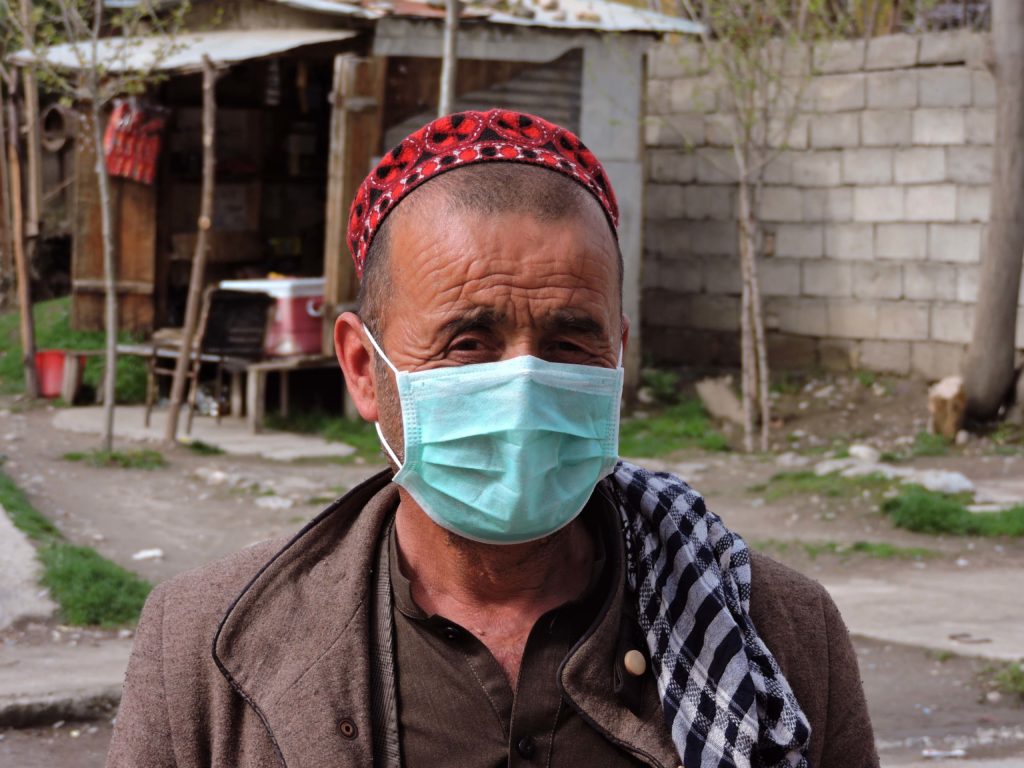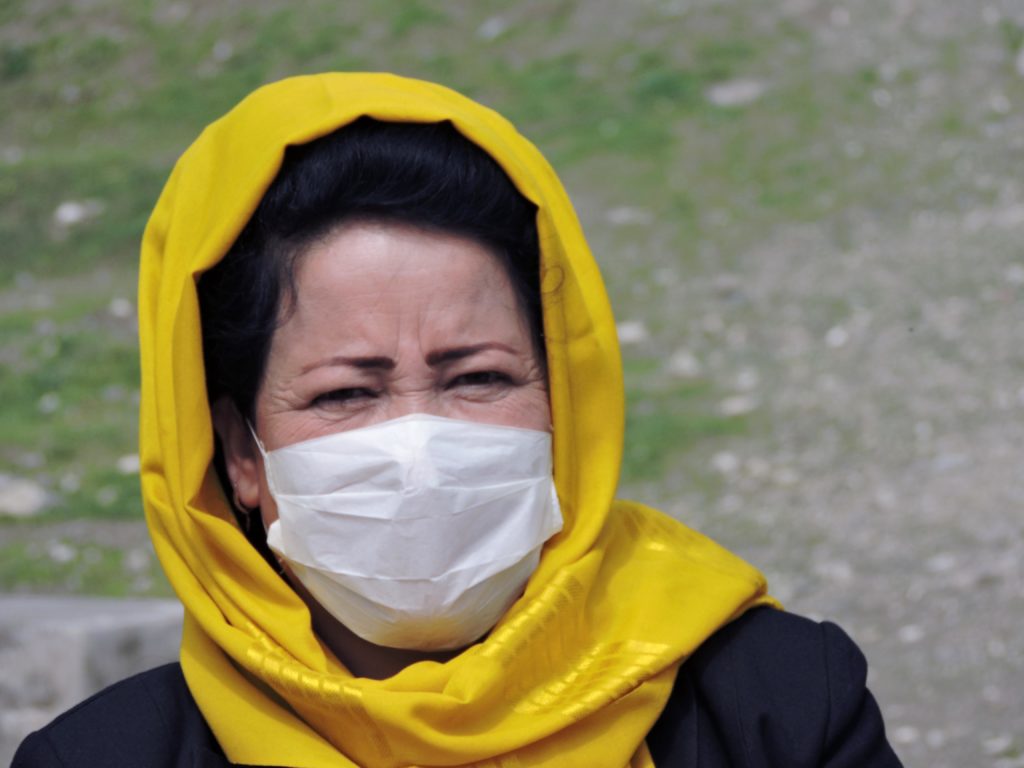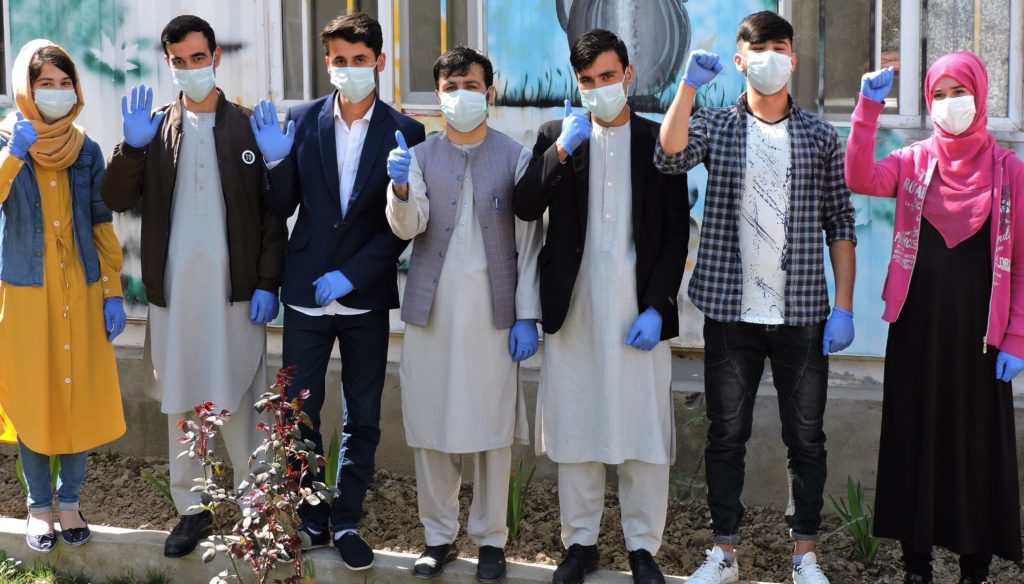COVID-19 appeared in Wuhan, a city in China, in December 2019. Although health officials are still tracing the exact source of this new coronavirus, early hypotheses thought it may be linked to a seafood market in Wuhan, China. Afghanistan confirmed its first case of the coronavirus in the western province of Herat on Monday, February 17, 2020, declaring a state of emergency in a territory bordering Iran which itself reported a sharp rise in cases.
A group of Young Leaders, Omid Elham, Habibullah Ibrahhimi, Sebghatullah Rezaei, Shukiba Hurakhsh, and Zahera in Badakhshan came together and started awareness rising regarding COVID 19-Coronavirus with the cooperation of Public Health Department, Civil Society, Committed Women Association and Omid-e-Dobara Group in three specific parts of Faizabad, Badakhshan, farthest northeastern of Afghanistan since March 14, 2020.
Initially, they have received some direction from the Public Health Department. According to Omid Elham a Young Leader of Ipso’s cultural container in Badakhshan: “The thing that makes me worried about coronavirus in Afghanistan is that our people, due to the weak economy, are already suffering from different diseases and they have a weak immune system. So together with other Young Leaders, we decided to conduct awareness sessions for the communities where they do not have access to media even do not have sufficient education to get preventive information through banners and informational posters.
Young Leaders who have received some direction and training from public Health Department of Faizabad says “we have shared this information with the people in communities, the best way to prevent illness is to avoid being exposed to this virus are as follow:
The virus is thought to spread mainly from person-to-person. Between people who are in close contact with one another (within about 6 feet). Respiratory droplets produced when an infected person coughs or sneezes. These droplets can land in the mouths or noses of people who are nearby or possibly be inhaled into the lungs.
Abdul Hakim, a resident of the Third District in Faizabad, says: “When I heard about Corona, I thought only the outside countries would deal with this problem and everything in Afghanistan was safe and secure, but after you came to our area, and I participate in the awareness sessions I learned that the virus is spreading rapidly and if we do not take it seriously, it will become epidemic. Therefore, all citizens should try and prevent further spread of the virus”
“I had just heard the name of Corona and had no knowledge of it” says one of the participant Fariba
Bibi Gul who participated in young leaders’ awareness session says: “Now I’m glad that my mind was opened and I was aware of the seriousness of the situation. So I will try to take care of myself and my family and to reach out to others.”
Take steps to protect yourself
Illustration: washing hands with soap and water. Clean your hands often, wash your hands often with soap and water for at least 20 seconds especially after you have been in a public place, or after blowing your nose, coughing, or sneezing. If soap and water are not readily available, use a hand sanitizer that contains at least 60% alcohol. Cover all surfaces of your hands and rub them together until they feel dry. Avoid touching your eyes, nose, and mouth with unwashed hands. Avoid close contact Avoid close contact with people who are sick. Put distance between yourself and other people if COVID-19 is spreading in your community. This is especially important for people who are at higher risk of getting very sick.
Take steps to protect others
Stay home if you’re sick. Stay home if you are sick, except to get medical care. Learn what to do if you are sick.
Women covering their mouth when coughing, Cover coughs and sneezes, Cover your mouth and nose with a tissue when you cough or sneeze or use the inside of your elbow. Throw used tissues in the trash. Immediately wash your hands with soap and water for at least 20 seconds. If soap and water are not readily available, clean your hands with a hand sanitizer that contains at least 60% alcohol.
The man wearing a mask, wear a facemask if you are sick: You should wear a facemask when you are around other people (e.g., sharing a room or vehicle) and before you enter a healthcare provider’s office. If you are not able to wear a facemask (for example, because it causes trouble breathing), then you should do your best to cover your coughs and sneezes, and people who are caring for you should wear a facemask if they enter your room. Learn what to do if you are sick.
If you are NOT sick: You do not need to wear a facemask unless you are caring for someone who is sick (and they are not able to wear a facemask). Facemasks may be in short supply and they should be saved for caregivers.
Clean and disinfect frequently touched surfaces daily. This includes tables, doorknobs, light switches, countertops, handles, desks, phones, keyboards, toilets, faucets, and sinks. If surfaces are dirty, clean them: Use detergent or soap and water prior to disinfection.
“There is currently no vaccine to prevent coronavirus disease in 2019 (COVID-19). In order to combat COVID 19 rising awareness among people and communities in Faizabad is the way we have done so far.” Says Shukiba Hurakhsh and Zahera
So Far about 1200 people have benefited from the young Leaders’ awareness sessions and they have planned to continue it in other parts of Faizabad, Badakhshan.
















